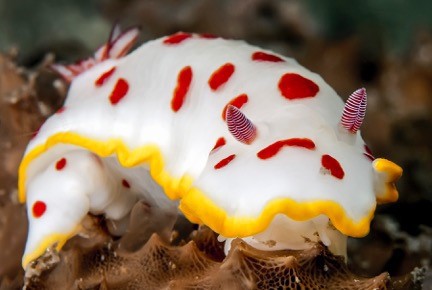Sea slug census is on this Saturday

Members of the Combined Hunter Underwater Group (CHUG), Southern Cross University’s (SCU) National Marine Science Centre and Underwater Volunteers NSW will this Saturday visit Nelson Bay, Port Stephens, to record and identify sea slug diversity.
SCU Associate Professor Steve Smith said censuses have been conducted every three months at Nelson Bay since December 2013 “to support our notion that Nelson Bay is an important biodiversity hotspot in eastern Australia”. The region is renowned for its huge range of shell-less marine molluscs, including the amazingly vibrant nudibranchs.
“The results to date confirm this, with more than 200 species identified from photographs taken during the census program and from historical images,” he said. “Most of these have been seen along a very small stretch of coast.”
Professor Smith said each census attracts more divers and adds more sea slug species to the list. In March 2015, he said, “divers added three species to the regional list and confirmed the presence of two introduced species that were first observed in the inaugural census in December 2013”.
Sea slugs are very colourful, not very mobile and plentiful in the Port Stephens area, making them ideal subjects for underwater photographers and citizen scientists alike. They are also very good indicators of climate change, due to their high visibility, short lifespans and ease of identification.
“Sea slugs have very rapid life cycles and they can respond quickly to changing environments, so they have great potential as indicators of environmental health,” Associate Professor Smith said.
The seventh seasonal sea slug census in the Port Stephens area will be held on Saturday, 6 June. To register your interest and join in the hunt, send an email to seaslugcensus@gmail.com.
Rapid sensor can detect pregnancy complications sooner
Researchers have developed a rapid sensor that can detect pregnancy complications as early as 11...
New test could optimise preventive treatment for heart attacks
A simple scoring system could revolutionise how doctors prevent heart attacks and strokes by...
Selective combustion removes pollutants from industrial processes
Researchers have discovered how a catalyst can be used to selectively burn one molecule in a...




